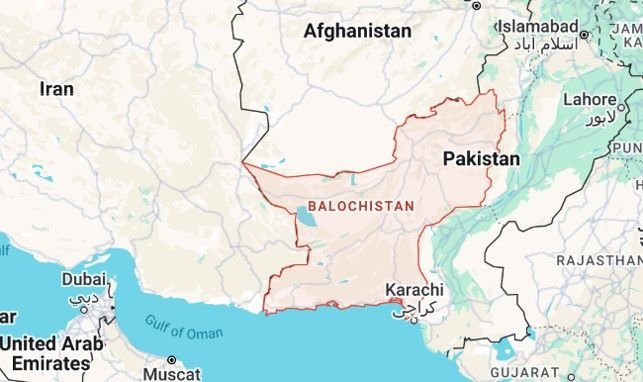Escalation in Pakistan: Balochistan Train Hijack Raises Alarm Bells
A recent hijacking of the Jaffar Express in Pakistan’s restive Balochistan province signals an alarming escalation of violence in the region. The attack, orchestrated by fighters associated with the Baloch Liberation Army (BLA), resulted in significant casualties, sparking fears that this may signal a dangerous new phase in Pakistan’s internal security situation.
According to reports, over 400 passengers were aboard the Jaffar Express, traveling from Quetta in Balochistan toward Peshawar. The train was targeted by armed militants in a meticulously coordinated operation, leading to the death of at least 31 individuals and leaving over 100 injured, primarily women and children.
Eyewitnesses described the scene as chaotic and frightening, equating the intensity of explosions to an earthquake. Several residents reported widespread panic, with women and children particularly traumatized by the violence.
Militants Demonstrate Professional Tactics
The professional manner in which the attackers executed the operation alarmed security analysts. Militants systematically separated civilians from Pakistani security personnel, releasing the civilians in groups rather than holding them hostage indefinitely. Witness accounts and local sources confirm that many civilians were not rescued by security forces but were instead voluntarily released by the militants, believed to be members of the Balochistan Liberation Army (BLA).
Pakistani military authorities initially reported that four soldiers and 21 civilians lost their lives, claiming their forces neutralized 33 terrorists, effectively ending the siege. However, the BLA denied these claims, asserting its readiness to escalate conflict if provoked further by the Pakistani military.
Root Causes and Rising Violence
At the heart of the conflict lies long-standing resentment among Baloch separatists who claim systemic exploitation and neglect by Islamabad. The province of Balochistan, though resource-rich with substantial oil and gas reserves, remains economically disadvantaged. Baloch activists allege severe human rights abuses and widespread malnutrition, particularly affecting children. Analysts believe this has strengthened local support for the separatists, who see armed struggle as their only effective recourse.
In recent years, the frequency of violent attacks by the BLA has escalated dramatically. Pakistani think tanks have indicated a worrying 40% increase in terrorist incidents in the past year alone, with military casualties reportedly numbering more than 685.
Regional and Global Implications
The Pakistani military swiftly responded to the hijacking, accusing the Taliban’s interim Afghan government of involvement and complicity. Islamabad officials announced that the rules of engagement had changed, suggesting a harder line toward insurgencies. However, analysts warn this declaration signals an intensified crackdown, possibly leading to greater civilian casualties.
Meanwhile, Islamabad’s accusations towards Kabul have added further strain to Pakistan-Afghan relations. The Taliban administration denies involvement and has alleged vindictive motives behind Pakistan’s claims at international forums.
In response to Pakistan’s allegations linking the BLA with extremist entities like ISIS and Al-Qaeda, experts have clarified significant ideological differences, highlighting the Balochistan Liberation Army’s distinct regional nationalist aspirations. Nonetheless, Islamabad’s attempt to associate the separatist group with global terrorist networks may influence international diplomatic and security dynamics.
Recognizing the Baloch Cause Internationally
The Baloch issue is receiving increasing global attention. Notably, Mehran Marri, a prominent Baloch activist, has been nominated for the 2025 Nobel Peace Prize. Simultaneously, Mama Qadeer Baloch and Nargis Baloch have received nominations for the prestigious Nelson Mandela Peace Prize. These international recognitions underscore a growing global awareness of the Baloch rights movement, potentially placing added diplomatic pressure on Pakistan to address underlying grievances.
What Lies Ahead
The train hijacking is indicative of deeper and unresolved tensions within Pakistan. Analysts anticipate more targeted violence, with heightened security responses from Islamabad. The Pakistani army’s announcement of a decisive conclusion to the operation has been met with skepticism by security observers, who argue that the conflict is likely far from over.
Given the volatile situation and the complexities of regional dynamics, the latest episode suggests a potential escalation of violence rather than resolution. As tensions rise, the question remains: Is this incident an isolated tragedy or the start of a broader and prolonged conflict in the region? Only time will clarify, but the current trajectory remains deeply concerning.
Also see:
Trump Announces “Reciprocal Tariff” Plan, Targets India and Other Nations
Tesla Signs Mumbai Showroom Lease, Marks Entry into Indian Market
EU Unveils €800 Billion Plan to Strengthen Defence
—————————————————————
It would mean the world to us if you follow us on Twitter, Instagram and Facebook




